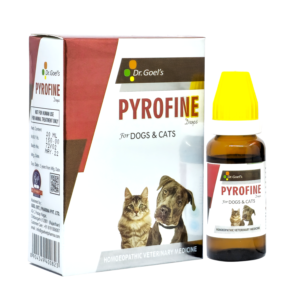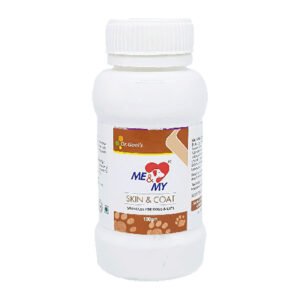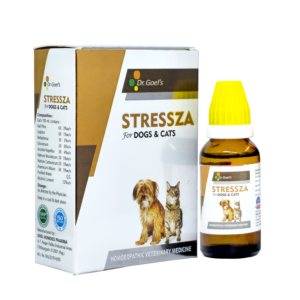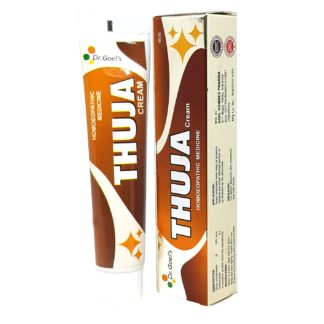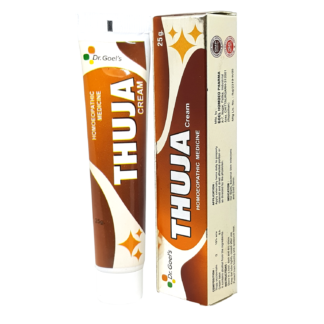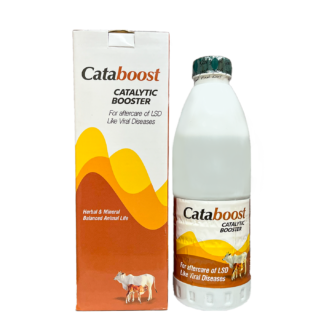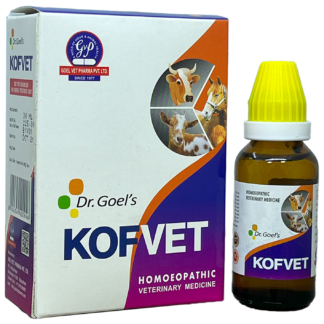Dog Fever Medicine: Recognizing and Treating Canine Fever

As loving pet owners, seeing our furry companions unwell can be alarming, especially when they show signs of a fever. Much like humans, dogs can experience fever, which is often an indication of an underlying health issue and dog fever medicine. Understanding how to recognize and treat canine fever is crucial for maintaining the well-being of our beloved pets.
Recognizing Canine Fever
You are surely aware of the tried-and-true technique that many dog owners use to determine whether their dog has a fever: Touch his nose. He’s okay if it’s wet and cold. It is likely that he has a fever if it is hot and dry. Easy enough, huh? While there is nothing wrong with employing this antiquated method, there are situations when it becomes more complex, and the nose test is frequently insufficient to accurately determine whether a fever is present.
Check Out Our Product : – PYROFINE for PETS 20ML
What Is a Dog's Normal Temperature?

Your dog’s normal temperature ranges from 99.5 to 102.5F, which is greater than that of humans, who have a normal temperature range of 97.6–99.6F. A pet thermometer can be used to take your dog’s temperature. Now that we are aware of what is typical let’s examine the symptoms that indicate whether or not our dog is feverish and out of range. Then we need dog fever medicine.
What Are the Canine Fever Symptoms?
Since your dog cannot communicate with you when he has a fever, you should know the signs that may be present.
These are the most typical indicators:
- Red eyes
- Lethargy/lack of energy
- Warm ears
- Warm, dry nose
- Shivering
- Loss of appetite
- Coughing
- Vomiting
What Causes Fever in Dogs?
Pets may get a fever as a result of an infection or inflammation as their bodies try to fight it off. They consist of the following and can be internal or external:
- A bite, cut, or scratch that is infected
- Infection of the ears
- infection of the urinary tract (UTI)
- tooth infection or abscess
- persistent viral or bacterial illness
- infection of the kidneys or lungs, for example
Fever can also result from the ingestion of toxic substances. Among them are:
- Plants that are toxic
- Freeze
- Human prescription drugs
- Foods made by humans that are harmful to dogs include xylitol, an artificial sweetener.
Pet poison hotline should be contacted if you believe your dog has consumed something toxic.
Vaccinations: Fever in dogs causes
A low-grade fever is frequently seen by humans and pets 24–48 hours after vaccination. Usually harmless, this goes away in a day or two, but keep an eye on the situation.
Treating dog temperature
Using a rectal or ear thermometer, you can only take your dog’s temperature accurately, so it might not be the most fun thing you ever do together. These days, pet-specific digital thermometers are available. One of these ought to be included in your dog’s first aid kit. It can reduce your suffering as well as his in around 60 seconds by taking your temperature. First, lubricate the rectal thermometer with baby oil or petroleum jelly. As soon as you receive a reading, remove it from your dog’s anus after gently inserting it for approximately an inch.
Even though they are less intrusive, ear thermometers are a trustworthy tool for taking your dog’s temperature. It gauges the heat waves that radiate infrared from the vicinity of the eardrum. The thermometer is inserted deeply into the horizontal ear canal to get an accurate reading. Although ear thermometers are often a little more expensive, your dog will appreciate that you are ready to pay a little extra. Carefully read all directions. Never use a thermometer made of glass.
When to Bring Your Dog to the Vet: Veterinary care for feverish dogs
When a dog’s temperature hits 103 degrees or above, it’s considered a fever. It’s time to visit the veterinarian if it does. Never wait until your pet’s temperature reaches 106 degrees or more; this can harm or even kill them. It can also cause internal organ damage. Finding the underlying reason can be difficult once at the veterinarian. Your dog’s medical history, including details on previous illnesses, allergies, surgeries, vaccinations, and medications, is most likely documented in a file at your veterinarian.
However, the veterinarian might also need to be informed about recent physical wounds, poisoning from plants or other sources, bug bites, etc. Noting when you initially detected the fever will also be useful.
Following a physical examination, your veterinarian may request standard laboratory testing, such as a blood count, biochemistry profile, or urinalysis. They may provide helpful details regarding an infection or underlying ailment. If there is an infection, your dog might need to take medicine. Further specialised tests can also be necessary. It’s not always possible to identify the fever’s underlying cause. For this, veterinarians even have an acronym: FUO (Fever of Unknown Origin).
How to Reduce a Dog’s Fever: Treating Dog Temperature
If a pet has a fever (103 degrees or higher), start by putting cool water on his feet and ears. You can use a dog cooling vest, a moistened towel, or a piece of cloth. You can stop using the water when his temperature falls below 103, so keep an eye on it. Try to talk him into taking a sip of water with dog fever medicine. Your dog still has to be properly watched to make sure his fever doesn’t return, and if he shows any other symptoms, you may need to take him to the doctor. Recall: It’s better to be safe than sorry.
Conclusion
Maintaining a dog’s health and well-being requires identifying and treating fever. Pet owners can aid in their furry friends’ recovery from illness and improve their quality of life by being aware of the signs of canine fever and obtaining timely veterinarian care. Throughout your dog’s recuperation, don’t forget to put their comfort, nutrition, dog fever medicine, and hydration first. You can also always seek the advice and assistance of a veterinarian.
Homeopathic Solution For Dogs and Cats
PYROFINE FOR FEVER OR PYREXIA
DERMISULE For All Kinds of Skin Issues in Pets:
ME and MY SKIN AND COAT Homeopathic Supplement
ME and MY IMMUNITY Homeopathic Supplement
STRESSZA FOR PETS STRESS AND ANXIETY
STRESSZA for pets is an excellent remedy for treating Anxiety, Stress, and Canine Distemper. When your fur baby is unanimously scratching, barking, hiding behind, feeling anxious, eating nothing, even sometimes behaving wild or attacking unknowingly, etc. these all symptoms may be due to Anxiety and Stress or due to various causes of Canine Distemper. We have the best solution to all your problems, We have STRESSZA is a unique homeopathic veterinary formulation to relieve stress in pets.
Stressza for pets works for Stress due to Traveling, Crackers in Festive Season, Fighting with stray dogs, Home alone, Visiting Hospital for Vaccination, etc.
ME & MY VITALITY SUPPLEMENT FOR STRESS & ANXIETY
GOHEAL SPRAY FOR Injury, FMD, and Burns
Read more : – Pet Medicine Online: Navigating the World of Online Pet Pharmacies
 Australian Shepherd
Australian Shepherd Beagle
Beagle Belgium Shepherd
Belgium Shepherd Bernese Mountain Dog
Bernese Mountain Dog Border Collie
Border Collie Boxer
Boxer Bulldog
Bulldog Cavalier King Charles Spaniel
Cavalier King Charles Spaniel Chihuahua
Chihuahua Cocker Spaniel
Cocker Spaniel Dachshund
Dachshund Doberman Pinscher
Doberman Pinscher Dogo Argentino
Dogo Argentino French Bulldog
French Bulldog German Shepherd
German Shepherd Golden Retriever
Golden Retriever Great Dane
Great Dane Himalayan Shepherd
Himalayan Shepherd Indie Dogs
Indie Dogs Labrador Retriever
Labrador Retriever Pakistani Bully
Pakistani Bully Pembroke Welsh Corgi
Pembroke Welsh Corgi Pitbull
Pitbull Pomeranian
Pomeranian Poodle
Poodle Pug
Pug Rottweiler
Rottweiler Shih Tzu
Shih Tzu Siberian Husky
Siberian Husky Yorkshire Terrier
Yorkshire Terrier Abyssinian
Abyssinian American Bobtail
American Bobtail American Shorthair
American Shorthair Balinese Cat
Balinese Cat Bengal Cat
Bengal Cat Birman
Birman Bombay Cat
Bombay Cat British Longhair
British Longhair British Shorthair
British Shorthair Burmese Cat
Burmese Cat Devon Rex
Devon Rex Exotic Shorthair
Exotic Shorthair Himalayan Cat
Himalayan Cat Maine Coon
Maine Coon Oriental Shorthair
Oriental Shorthair Persian Cats
Persian Cats Ragdoll
Ragdoll Scottish Fold
Scottish Fold Siamese Cat
Siamese Cat Siberian Cat
Siberian Cat Sphynx Cat
Sphynx Cat

































